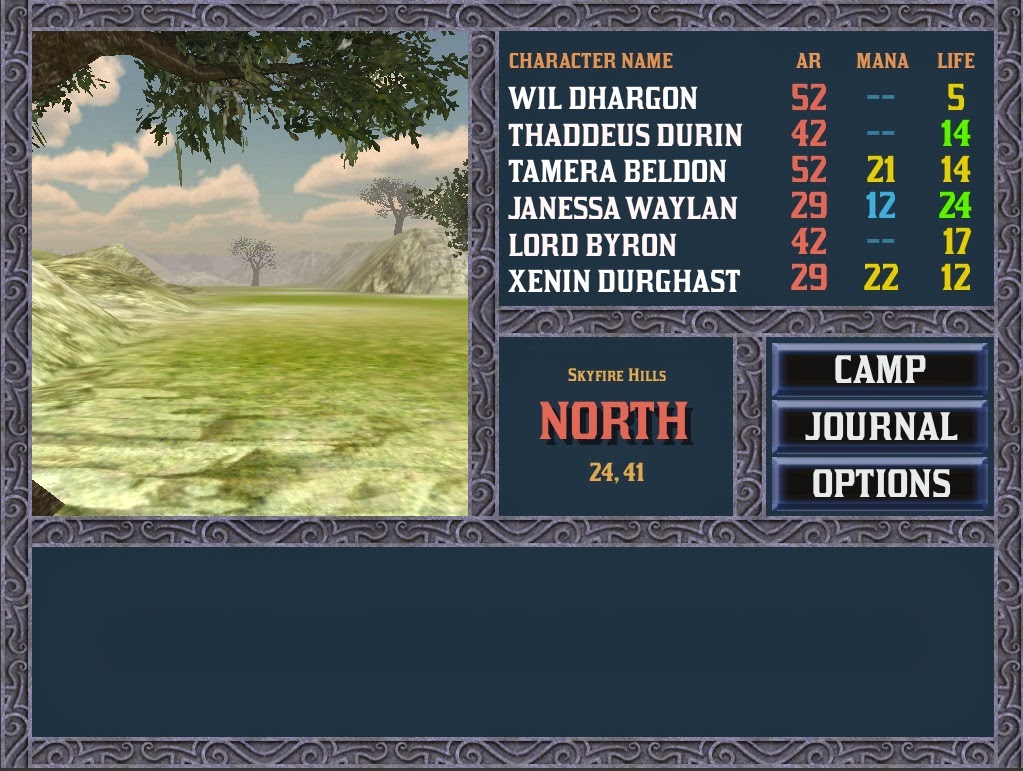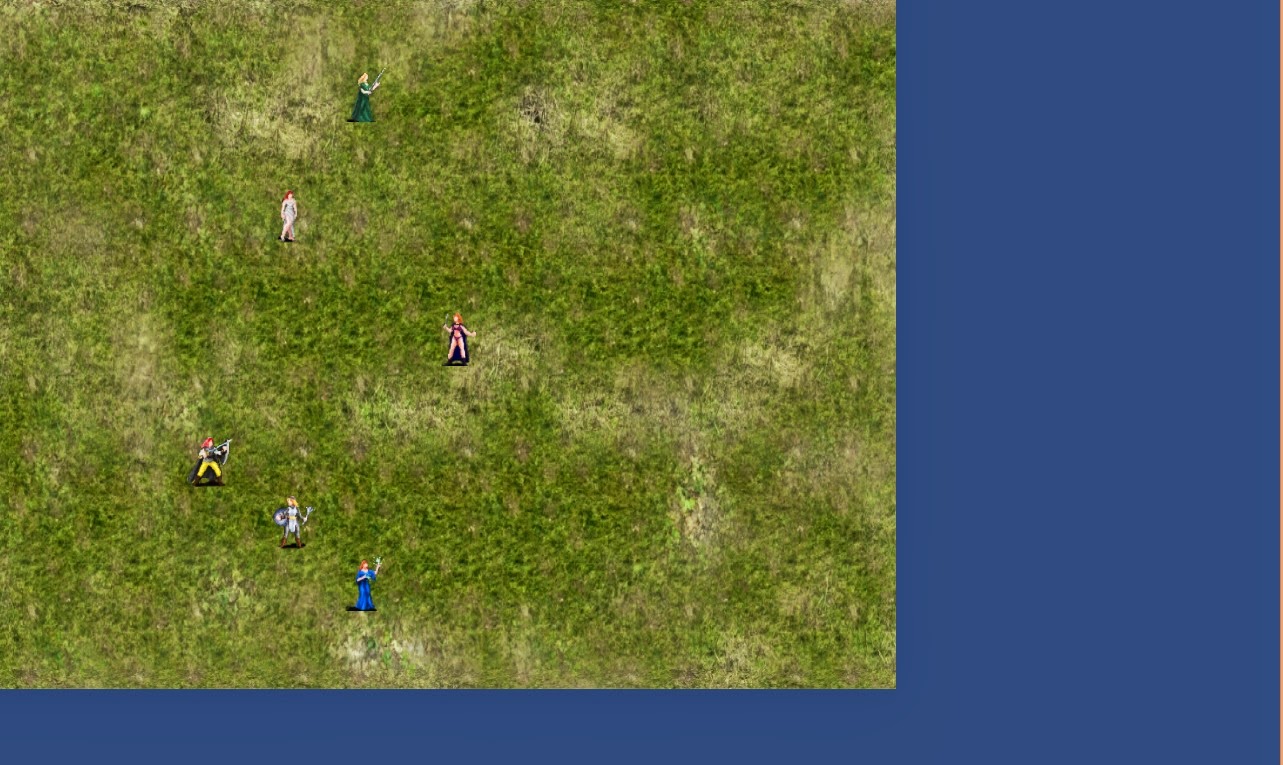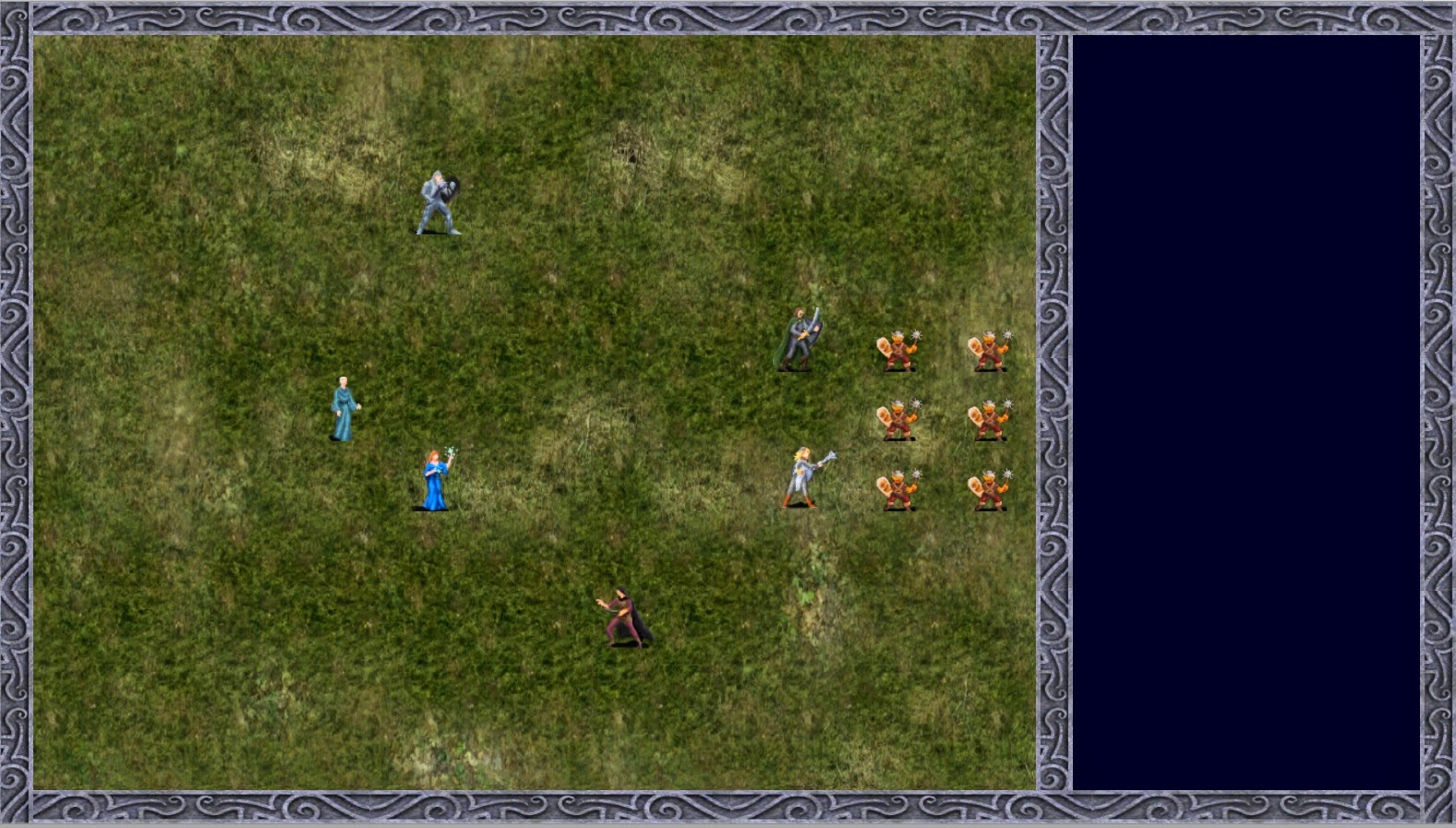ProphetSword
Arcane

At one point, I had smooth movement going (similar to The Legend of Grimrock). However, I couldn't get the rotation to work the way that I wanted, and I wasn't sure it would do the collision detection accurately. I went with something a little more simple and figured I would address it later.
Also, does anyone know what it would require to use the OGL in a video game? I tried it once, but trying to follow exactly what I had to do in order to not break the license turned out to be a nightmare. I know other people have done it (like Knights of the Chalice), so if anyone can help me determine what can and cannot be done with it, I would be appreciative. Using the OGL would make this game even more Gold-Box like in nature.
Also, does anyone know what it would require to use the OGL in a video game? I tried it once, but trying to follow exactly what I had to do in order to not break the license turned out to be a nightmare. I know other people have done it (like Knights of the Chalice), so if anyone can help me determine what can and cannot be done with it, I would be appreciative. Using the OGL would make this game even more Gold-Box like in nature.





















